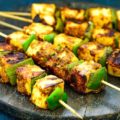Embarking on a new workout routine is one of the most exhilarating things that we can undergo. But getting on the road to losing weight or achieving our strength goals can come with a lot of obstacles, not just in strength plateaus or the difficulty that comes with workouts, but the lifestyle changes. The first thing we have to do to address any weight loss or fitness goals can be the most difficult obstacle: fixing our eating habits. When we set up a new workout routine, we’ve got to learn how to eat right so we will feel better for our workouts. Here are a few things that you need to consider.
Keeping Track of How Much You Eat
It’s not necessary to be meticulous, but you have to be consistent with macronutrients and keep track of calories. For example, if you want to lose weight, you will need to consume approximately 10 to 12 calories per pound of body weight. If you want to gain strength, you will need to consume between 14 and 18 calories per lb., and your protein and fat intake should be similarly set out. For example, you should consume approximately 1 to 1.5 g of protein per pound of body weight and around 0.4 grams of fat per pound. A lot of people use supplements as a way to increase protein intake. There are plenty of providers out there including Muscle Rage USA that can help, but you need to remember that the majority of your dietary intake should come from food.
Fueling Yourself Properly
Eating before and after a workout may be essential. But it depends on when you are training. If you are exercising first thing in the morning, you may benefit from black coffee or water which could increase how much fat you burn. If you had dinner that night before, you would still have stored carbohydrates and amino acids in your body. But if you are training in the afternoon or the evening, approximately 50 g of carbs and 25g of protein an hour before the workout should give you enough power. When you are eating after a workout, ideally you want to consume something directly after your exercises to replenish glycogen stores and nourish your body, although this is not essential as muscle protein synthesis occurs for up to 48 hours after exercise.
Is it Possible to Have Cheat Days?
The most important thing to remember is to be consistent. You can have cheat meals, as this will keep you on track in the long term, but it’s important to not overindulge. When you have a cheat meal, make it whatever you want, and have as much as you like, but don’t turn it into a cheat day. Make it a massive meal if you want to, but when you are finished, do not go back! In the long run, having a solid diet is the thing that will help you to get stronger because it is not exclusively what happens in the gym that will make all the difference, it’s what happens outside of it.
Related Posts
- Tips for Creating and Starting a New Workout Routine
Working on your health and fitness is a good goal to have, but turning that…
- How Healthy Online Diet Clubs Killed the Crash Diet
There is a plethora of fad weight loss plans nowadays, especially as news comes out…
- How to overcome a weight loss plateau
As you work hard to achieve your weight loss goals, you might get to a…


















